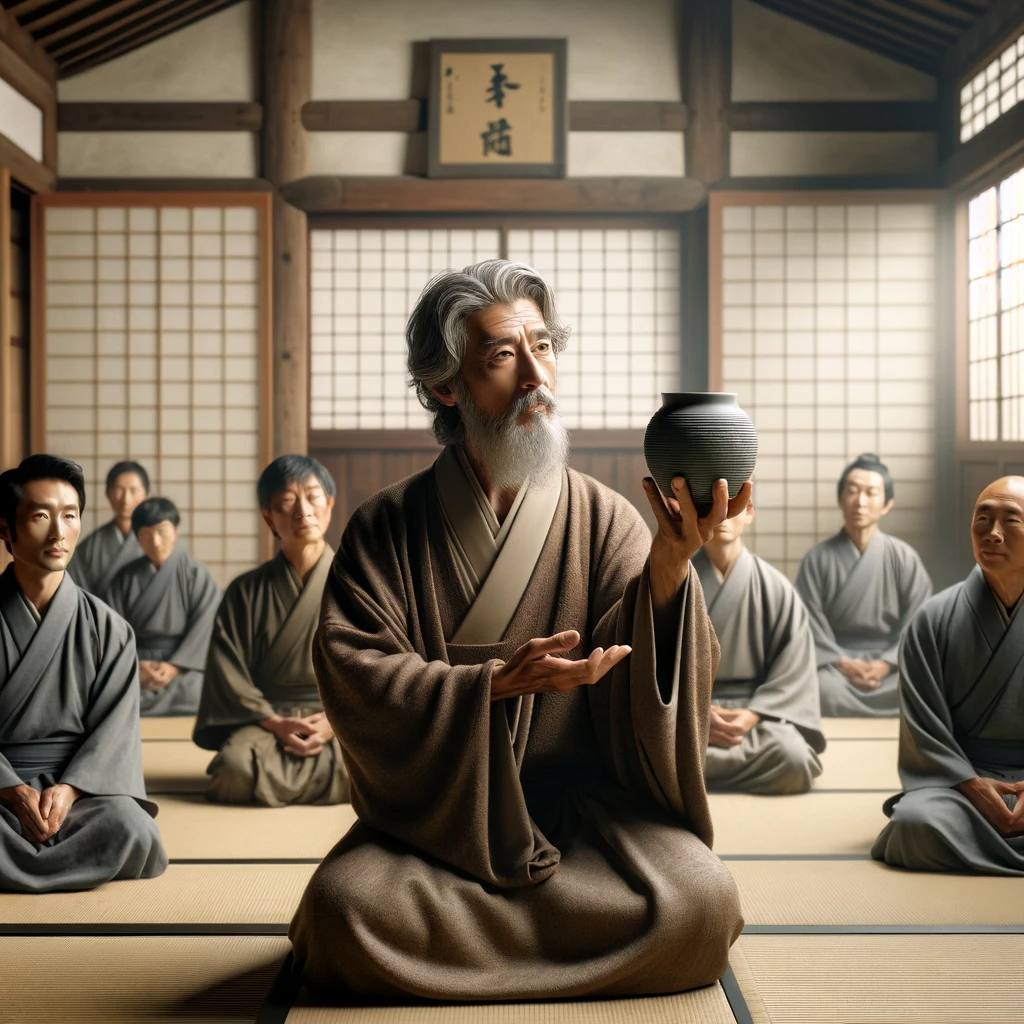The broken cup

In a secluded Zen monastery, an old master known for his profound teachings called his students for a lesson on impermanence. He held up a beautifully crafted ceramic cup, one that had been used by generations of monks.
“Observe this cup,” he said. “Right now, it is in my hands, whole and useful. But in your mind, consider it already broken.”
The students looked at each other, puzzled by the master’s words. The cup was clearly intact, showing no signs of damage.
The master continued, “Everything in this world, like this cup, is already broken. From the moment it comes into being, its journey towards breaking has begun. Our time with it, therefore, should be filled with appreciation and mindfulness.”
This koan perplexed the students. They spent days contemplating the master’s lesson, discussing the nature of existence and the meaning of impermanence.
One student finally approached the master and asked, “If everything is already broken, how should we live?”
The master replied, “Live as if you are holding a precious but broken cup. Treat it with care, enjoy its use, but do not become attached to its form. When the time comes for it to break, let it go with grace, for its nature was always impermanent.”
Through this koan, the students understood that everything in life, be it joy, sorrow, or material possessions, is transient. The lesson was not to become attached to the impermanent but to live in the moment, appreciate the present, and gracefully let go when the time comes, embracing the natural flow of life.